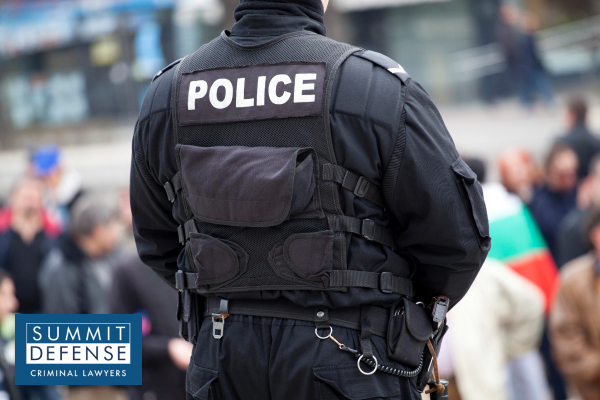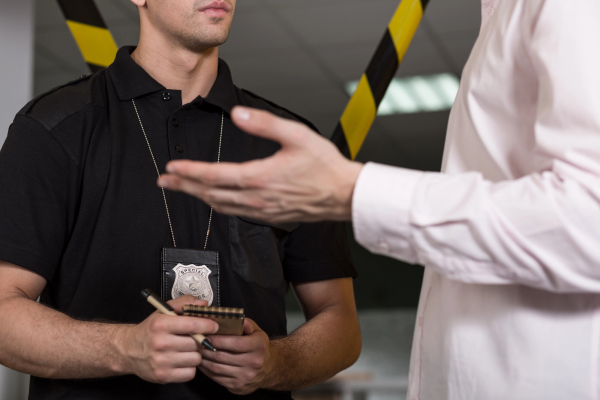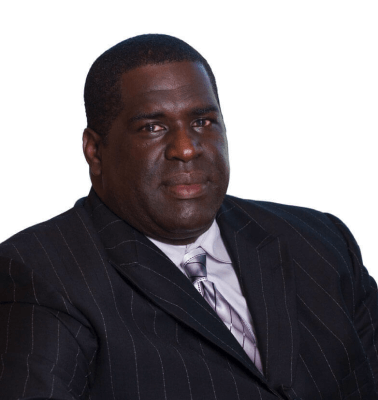What Are Miranda Rights?
Your Miranda rights are legal warnings the police must give before questioning you while you’re in custody. These rights are based on a Supreme Court case that changed how law enforcement officers handle interrogations.
When Police Must Read You Your Rights
The Miranda warning must be given when two conditions are met: (1) you are in police custody, and (2) the police officers want to question you about a crime. If both apply, they must inform you of your rights before speaking with you.
The Supreme Court’s decision in Miranda v. Arizona made it clear that suspects must be told about their right to remain silent, the right to have an attorney present, and the warning that anything said can be used in court. Without this, it can be a Miranda violation.
If you’re being questioned in a patrol car, a police station, or any other place where you are not free to leave, the Miranda rule likely applies. If they don’t warn you, it doesn’t always end the case, but your answers may be kept out of court.
The Four Core Warnings
- You have the right to remain silent: This means you do not have to answer questions or make any statements that could lead to self-incrimination.
- Anything you say can be used against you in court: Anything you share after your Miranda warning can be turned into evidence during a criminal proceeding.
- You have the right to an attorney: You may ask for a lawyer present before or during questioning, and one must be provided if you can’t afford one.
- If you cannot afford an attorney, one will be provided: You don’t have to pay to protect your rights. A public defender will be assigned if needed to support your legal counsel.
Do You Have to Talk to the Police?
 No, you do not have to speak with police officers if you are being questioned about a crime. The Supreme Court made it clear that every person arrested or taken into police custody has the right to remain silent, which means you can refuse to answer questions without breaking the law.
No, you do not have to speak with police officers if you are being questioned about a crime. The Supreme Court made it clear that every person arrested or taken into police custody has the right to remain silent, which means you can refuse to answer questions without breaking the law.
This constitutional right comes from the Fifth Amendment, which protects you from self-incrimination. Even if you’re innocent or feel like cooperating will help, talking without a lawyer present can lead to trouble. The Miranda warning exists so you understand this right and don’t feel pressured to explain or defend yourself on the spot.
Whether you’re stopped at a traffic light or taken to a police station, you’re never required to talk about a crime. In fact, many defense attorneys advise their clients to say nothing at all until they’ve had the chance to speak with their legal counsel.
When Are You Required to Provide Information?
There are limited situations where you are legally required to give basic information to law enforcement officers. But beyond that, you are protected by your Miranda rights and the right to remain silent.
Basic Identification During a Traffic Stop
If you’re pulled over while driving, the police officer may ask for your name, driver’s license, registration, and proof of insurance. In this situation, you’re required by law to provide those items. This is part of routine procedure and doesn’t mean you’re waiving your constitutional rights.
However, once you’ve given your identification, you don’t have to answer questions about where you’re going, what you’ve done, or anything else related to a possible crime. You can respond politely, but you have the right to remain silent if they begin questioning you further.
Even if you’re just a passenger, some states may require you to give your name, but you are still not obligated to answer any additional questions without a lawyer present.
You’re Not Required to Answer Questions
Unless you are being asked for basic identification during a lawful stop, you are not required to answer questions from law enforcement officers. This holds true even if they try to make it seem like talking will help your situation.
If you are not in police custody, you can calmly ask, “Am I free to leave?” If the answer is yes, you can walk away. If you’re under arrest, the Miranda warning should be given, and that’s your signal to stop talking and request legal counsel.
Even if you think staying silent looks suspicious, the Supreme Court has confirmed that silence cannot be used as proof of guilt. Your silence is your constitutional right, and using it cannot legally be held against you in court.
You Can Politely Decline Further Discussion
If a police officer starts asking you questions, you can always respond with, “I want to remain silent and speak with a lawyer.” Saying this clearly tells law enforcement you are using your Miranda rights.
There’s no need to argue, explain yourself, or try to convince them of your side. The more you talk, the more you risk saying something that might be misunderstood or used later in a criminal proceeding.
Once you say you want a lawyer present, the police must stop questioning you. This is true whether you’re at a police station, in a patrol car, or standing on the street. The moment you ask for legal counsel, they are not allowed to continue questioning unless you give a clear and voluntary affirmative answer to resume.
What Happens If Police Don’t Read Your Miranda Rights?
 Many people think that if the police fail to read your Miranda rights, the entire case gets thrown out. That’s not always true. However, there are serious consequences for the prosecution if a Miranda warning is required and not given.
Many people think that if the police fail to read your Miranda rights, the entire case gets thrown out. That’s not always true. However, there are serious consequences for the prosecution if a Miranda warning is required and not given.
Statements Made in Custody May Be Inadmissible
If you are in police custody and questioned without being read your Miranda rights, anything you say may be kept out of court. This includes confessions, explanations, or answers to questions that would normally help the prosecution.
This rule protects your constitutional right against self-incrimination. The Supreme Court made it clear that people must be told their rights before being interrogated in custody. If not, your criminal defense attorney can argue that those statements should be excluded from the criminal proceeding.
However, the rest of the case may still continue. The evidence obtained outside of your statements, like a police report or witness testimony, can still be used, even if your words are suppressed.
Doesn’t Mean the Case Gets Dismissed Automatically
Not receiving a Miranda warning does not mean your case is automatically dropped. A Miranda violation only affects what you said while in custody, not the rest of the investigation.
The prosecutor can still move forward using physical evidence, witness statements, or anything found before or after your arrest. So, while your words may be excluded, the criminal procedure itself usually continues.
Still, if your entire case rests on a statement made during questioning, your criminal defense attorney may be able to push for charges to be reduced or even for the judge to dismiss the case if there’s not enough evidence left.
Miranda Only Applies to Custodial Interrogations
It’s important to know that the Miranda rule only applies during a custodial interrogation. That means the law enforcement officer must be questioning you, and you must not be free to leave. If you’re chatting with police officers on the street or during a casual conversation, they don’t have to read you your rights.
This is why many people mistakenly think their rights were violated. If the Supreme Court standard for “custody” isn’t met, the Miranda warning may not be required, even if the situation feels serious.
Your attorney will look at whether the setting, tone, and behavior of the arresting officer made it clear you were in police custody. If the answer is yes, and the warning wasn’t given, then anything you said could be challenged in court as a Miranda violation.
Why You Should Stay Silent Until You Have a Lawyer
Staying quiet isn’t just a right; it’s one of the most vital protections you have. Saying even one wrong thing during questioning can seriously damage your case. That’s why using your right to remain silent and waiting for legal counsel is always the smart move.
You May Say Something That Hurts Your Case
When you’re nervous, confused, or trying to explain yourself to police officers, it’s easy to say something that sounds like an admission, even if it’s not. The Supreme Court has ruled that any voluntary statement made in police custody can be used in court, even without bad intent.
You might think you’re helping, but your words can be twisted or misquoted later. Once something is said, your criminal defense attorney can’t take it back. The prosecution may use it to strengthen their case, especially if it fills gaps in their police report or supports the arrest.
Staying silent keeps things safe. It protects you from giving the prosecutor extra material to work with and keeps your defense stronger from the start.
Police Can Misinterpret or Misquote You
Even when police officers mean well, they might mishear what you said, leave details out of their notes, or summarize things in a way that hurts you. Later in court, that version could become part of the official record, even if it’s not exactly what you said.
If you’re being questioned without a lawyer present, there’s no one to correct mistakes in real-time. Your statement might also be recorded or written down incorrectly. These issues are harder to fix later, especially during a criminal proceeding.
A single misunderstood sentence could be seen as a confession or as evidence against you, even if that’s not what you meant. That’s why asking for a criminal defense attorney before speaking is one of the safest decisions you can make.
A Lawyer Can Help You Respond Properly Without Admitting Guilt
When you’re questioned about a crime, your words can have long-term consequences. A criminal defense attorney understands how to talk to the prosecutor or law enforcement officer without making your situation worse.
Your attorney knows how to answer questions in a way that protects your rights. They can give clear, careful responses or help you decide when it’s better to say nothing at all. Having legal counsel means you don’t have to figure it out on your own.
Even if you feel like you’re innocent or have nothing to hide, a good lawyer can help you avoid saying something that sounds like guilt. That’s the value of having someone trained in criminal procedure and courtroom strategy on your side from the beginning.
Once You Ask for a Lawyer, Police Must Stop Questioning You
As soon as you clearly ask for a lawyer, the police officers must stop all questioning. This is a rule set by the Supreme Court to protect your constitutional rights. If the police fail to honor that request and continue to ask questions, it may result in a Miranda violation.
You must ask directly and clearly. Saying “I want an attorney present” or “I’d like to speak with a lawyer” triggers this protection. You don’t have to say anything more after that.
Once you make that request, any further attempt by the arresting officer to question you can be challenged later in court. Your attorney can use that to keep out any statements or answers that were made after your rights were violated.
FAQs
 Getting stopped or questioned by police officers can feel intimidating. You may not know what to say or whether staying quiet will make things worse. The truth is that you have legal protections, and one of the most important is your right to remain silent.
Getting stopped or questioned by police officers can feel intimidating. You may not know what to say or whether staying quiet will make things worse. The truth is that you have legal protections, and one of the most important is your right to remain silent.

 No, you do not have to speak with police officers if you are being questioned about a crime. The Supreme Court made it clear that every person arrested or taken into police custody has the right to remain silent, which means you can refuse to answer questions without breaking the law.
No, you do not have to speak with police officers if you are being questioned about a crime. The Supreme Court made it clear that every person arrested or taken into police custody has the right to remain silent, which means you can refuse to answer questions without breaking the law. Many people think that if the police fail to read your Miranda rights, the entire case gets thrown out. That’s not always true. However, there are serious consequences for the prosecution if a Miranda warning is required and not given.
Many people think that if the police fail to read your Miranda rights, the entire case gets thrown out. That’s not always true. However, there are serious consequences for the prosecution if a Miranda warning is required and not given. If police officers questioned you, made a statement without a Miranda warning, or just aren’t sure whether your constitutional rights were protected, now is the time to get answers. Speaking to the police without understanding your Fifth Amendment right or your right to a lawyer present can seriously impact your case.
If police officers questioned you, made a statement without a Miranda warning, or just aren’t sure whether your constitutional rights were protected, now is the time to get answers. Speaking to the police without understanding your Fifth Amendment right or your right to a lawyer present can seriously impact your case.









